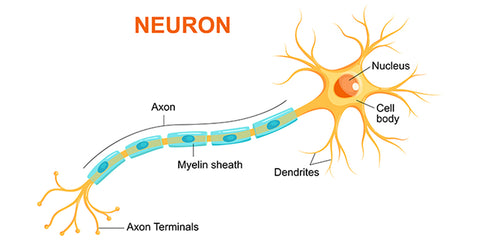Education

As a rule, we as Americans greatly undervalue sleep. According to Dr. Mehmet Oz, “Sleep is the most under-appreciated health crisis in America.” Dr. Oz helped gather information from a whopping 20,000 Americans to survey the current state of Americans’ sleep health. His findings suggest that sleep is vastly neglected by a number of US citizens: 79% of Americans get less than the recommended 7-8 hours of sleep per night.

When Americans were asked what type of resolutions they planned to make in 2021, physical health is the top priority. After a year that left people unable to get out much, many of the usual means of getting exercise, it’s no surprise that nearly 80% of people are targeting physical health-related goals in 2021, whether that means eating healthier, getting more exercise, or losing weight.

Vitamin D is an essential nutrient that your body needs for many vital processes, including building and maintaining your brain function, immune system and bone structure. Over 85% of people have insufficient vitamin D levels, which is particularly concerning given the pandemic and lack of sunshine in the winter months. Here are 3 effective ways to increase your vitamin D levels.

If you’ve ever wondered if there’s anything you can do to boost your memory, then you’re in luck! There are many practical steps you can take to improve your ability to remember. Many of them are lifestyle elements: the foods you eat, how active you are, etc. However, there are also simple tricks and tactics you can employ to optimize your cognitive function. Scroll down to discover the ways you can help keep your memory sharp and well-maintained over the long term.

As you probably know, changes in cognition (memory, information processing, etc…) are strongly correlated to aging. Aging well is driven in part by genetics but also by how well we look after our brain and body. So why do some people stay cognitively sharp throughout their life while others don’t? To answer this question, we’ve evaluated people who remain active physically and mentally and looked at the science of aging.

A brain that is healthy, well protected, and performs optimally is dependent on foods and supplements that achieve the following:
1. Maintain Glucose Levels 2. Promote blood supply and flow to the brain 3. Build and protect cell membranes and structures 4. Improves the functionality of neurons 5. Provide protection against oxidation and inflammation

Through our clinical research, we’ve learned that people that struggle with memory issues often struggle with mental health issues. Why are these two issues correlated and what changes can be made to realize a happy, healthier mood?
Sometimes, it’s difficult to get out of bed. When people are struggling with low energy and mood issues, routine tasks seem tedious and bad news can even sound worse. Dr. Carrie Holmberg from Stanford University says “When I see patients, they complain of mood and memory problems. Patients have trouble finding their keys or retaining information they’ve read in a book. People often point to just not being able to function as well.”

If you find yourself constantly feeling fatigued, distracted, moody and just plain “off,” you’re likely dealing with some sort of “brain fog.” Brain fog has become an unwanted side effect of our fast-paced, industrialized lifestyle and more recently, COVID-19 survivors.

The general health benefits of a plant-based diet are well-documented but did you know that scientific research now shows that plants can have beneficial effects on your brain function? Many leaves, roots, and berries contain ingredients that boost cognitive skills and alleviate common problems like stress, fatigue, and mood swings - without the side effects of conventional drugs.

We all want to age well. Regular exercise, eating right, and avoiding stress help maintain a healthy body as we age, but what about the brain? New research indicates these same strategies also promote brain health.

Most people in the scientific community now accept that the brain continues to repair itself and create new brain cells throughout life. The birth of new neurons in the brain is referred to as neurogenesis. Nerve growth factor (NGF) is a group of small protein-like molecules called neurotrophins that are responsible for neurogenesis or the development of new neurons and for the health and maintenance of mature ones.

Thanksgiving is full of family, friends, food, and great memories–but it isn't always compatible with a healthy lifestyle or weight management. When Thanksgiving week rolls around, it’s easy to get a little lax with maintaining healthy eating habits, exercise, and sleep habits, but it doesn’t have to be this way. Fortunately, with a few tricks and a little self-discipline, it’s possible to maintain a healthy lifestyle throughout the holiday season. Keep reading as we delve into 6 healthy tips and tactics you can use to stay on track this holiday season.



